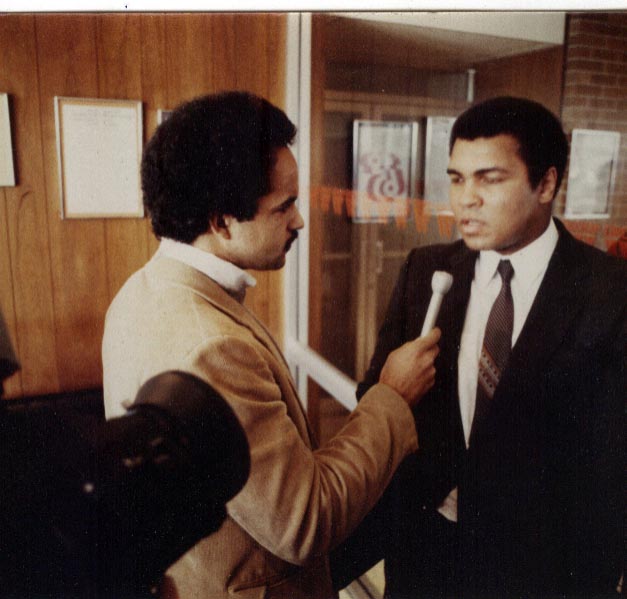The latest from UR professors Scott T. Allison and George R. Goethals, authors of Heroes: What They Do and Why We Need Them.
Declaring oneself a hero doesn't ordinarily do the trick. But former Heavyweight Champion Muhammad Ali is an international hero in the eyes of sports fans and ordinary citizens around the world. Ali began calling himself "The Greatest" early in his career, and clearly alienated many. Now people generally realize that his braggadocio was always part of the act, something that enabled him to perform at his best in the ring, and entertain and inspire millions.
As we describe in our HEROES book, Ali's odyssey to heroism was complicated. But by the time of the 1996 Olympics in Atlanta, Georgia, there was no question as to which American medal winner would light the torch at that year's Games. Two years later, it was only a bit of a surprise when corporate America fully endorsed Ali by putting him on a box of Wheaties cereal, The Breakfast of Champions. The citation on the box credited Ali's impact in sports and beyond: "he was a courageous man who fought for his beliefs" and "became an even larger force outside the ring with his humanitarian efforts."
When Ali, then Cassius Clay, won the heavyweight championship from Sonny Liston in 1964, large portions of white America were uneasy. Although Liston was widely associated with organized crime, and seemed like something of a thug, rumors also circulated about Clay being associated with "Black Muslims." Many people found this truly frightening. And although Ali's wit and boxing skills were extremely entertaining, almost as many were turned off by the talking and bragging of "The Louisville Lip" or "Gaseous Cassius."  In short order, some of people's worst fears were confirmed. Clay turned to Islam and took the name Muhammad Ali. He became a vocal critic of the Vietnam War and was arrested for refusing to be inducted into the armed services.
In short order, some of people's worst fears were confirmed. Clay turned to Islam and took the name Muhammad Ali. He became a vocal critic of the Vietnam War and was arrested for refusing to be inducted into the armed services.
Ali's resistance to the draft on the grounds that he was a Muslim minister struck many as ludicrous. But he fought in court for his deferment from the army and eventually won in a unanimous Supreme Court decision. However, his legal struggles kept him from boxing for three and a half years, costing him precious time at the peak of his career. But he had proved the depth and sincerity of his beliefs. At the same time, more and more people believed that he was correct to defend African American's rights to their own values and self-respect, and in his opposition to the Vietnamese war.
Eventually Ali got the chance to win back the boxing title he had lost while he was banned from fighting, and that he failed to regain when he met Joe Frazier in 1971. The year was 1974, ten years after he first won the title from Sonny Liston. He fought  a classic battle against George Foreman in the African nation of Zaire, now called Congo. That year he was named Sportsman of the Year by Sports Illustrated and it was clear that most Americans had come to embrace a talented and dedicated athlete who had both overcome racial and cultural barriers and had the courage to define himself and to help and encourage other black Americans to do the same.
a classic battle against George Foreman in the African nation of Zaire, now called Congo. That year he was named Sportsman of the Year by Sports Illustrated and it was clear that most Americans had come to embrace a talented and dedicated athlete who had both overcome racial and cultural barriers and had the courage to define himself and to help and encourage other black Americans to do the same.
After regaining the title from Foreman, Ali fought for several more years. But the numerous punches he had absorbed during his long career made him the victim of Parkinson's syndrome, a neurological disorder which makes motor activity, including walking and talking, extremely difficult. Ali still fights outside the ring for those he regards as his people, and he is a hero to most of America. His skill, his struggle, his commitment, his charm and his charisma are inspirational. He is one of the most recognized and admired people in the world. Both he and the nation have come a long way since he burst on the scene as a sassy young fighter who perplexed or repelled much of the country. For many, he remains an important hero.